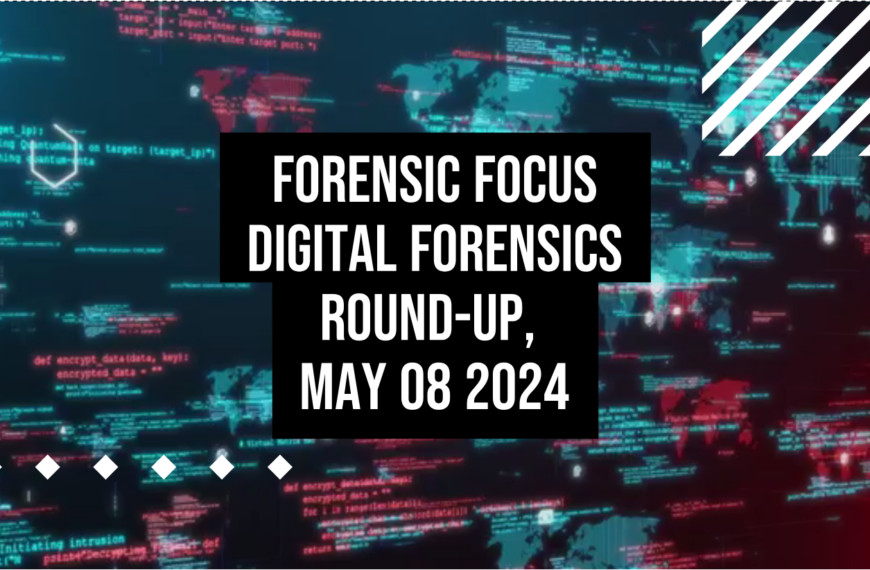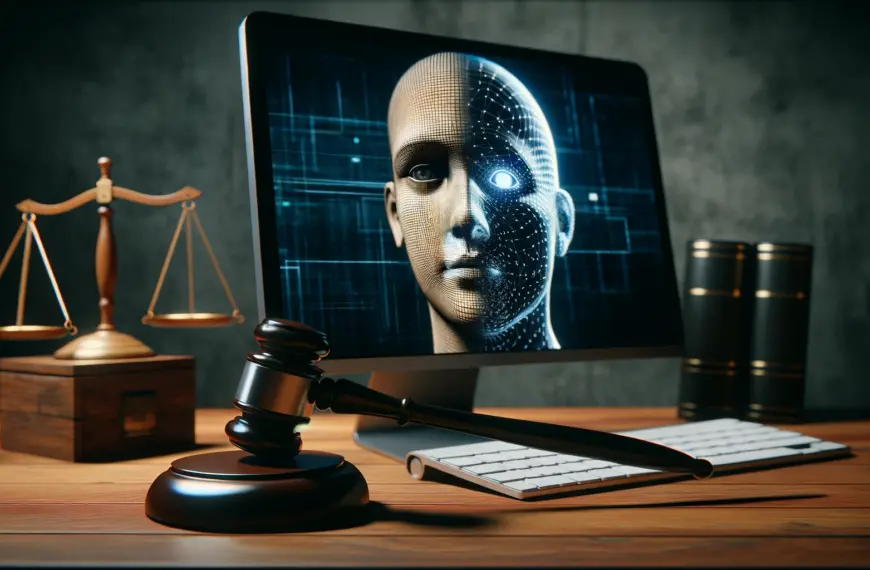University Programs
Digital forensics training is available in various formats, each with its unique merits and challenges. University programs are one option, offering both undergraduate and postgraduate courses that cater to different levels of expertise and career aspirations.
Undergraduate
These are typically bachelor’s degrees in fields like Cybersecurity, Digital Forensics, or Computer Science with a focus on forensics. Such programs lay a foundation in computer science, networking, and legal aspects, gradually introducing specialized topics like cybercrime, digital evidence handling, and forensic analysis techniques. They often blend theoretical knowledge with practical skills, preparing students for entry-level positions in the field.
Postgraduate
These are more advanced, often tailored for those who already have a background in digital forensics or a related field. Master’s degrees or postgraduate diplomas delve deeper into complex areas like advanced forensic techniques and emerging technologies. They are ideal for those looking to specialize further or pursue leadership roles.
You can search for digital forensics university courses in the Education section on Forensic Focus.
Modes of Delivery
When it comes to the mode of delivery, digital forensics training is offered through in-person, online, or hybrid formats, each with its own set of advantages and drawbacks.
Traditional classroom settings offer direct interaction with instructors and peers, which can enhance learning through collaborative and hands-on experiences. However, they require a significant time commitment and may not be as flexible for working professionals.
Online courses provide greater flexibility and can be more accessible for those balancing work and study. Online programs have evolved significantly, offering interactive materials, virtual labs, and forums for discussion. However, they may lack the immediacy of interaction and networking opportunities that in-person courses provide.
Combining the best of both worlds, hybrid courses offer flexibility while retaining some in-person elements like occasional campus visits or hands-on labs. This format can provide a more balanced approach, though it still requires careful time management.
Certifications
The field of digital forensics offers a variety of certifications, each designed to enhance the skills and knowledge of professionals in this evolving field.
SANS FOR508: Advanced Incident Response, Threat Hunting, and Digital Forensics
The SANS Institute offers the FOR508 course, which has been recently updated to reflect the latest industry developments. This course focuses on advanced incident response and threat hunting techniques, providing skills necessary for handling a wide range of threats, including APT nation-state adversaries, organized crime syndicates, and ransomware operators.
The curriculum includes real-world scenarios and hands-on exercises, using tools like the SANS Investigative Forensic Toolkit (SIFT) Workstation. This certification is ideal for professionals looking to deepen their understanding of attacker tactics, breach detection, and advanced forensics techniques.
IACIS Certification
The International Association of Computer Investigative Specialists (IACIS) offers a certification program designed for professionals in digital forensics. This program provides comprehensive training and examination in various aspects of computer forensics.
The certification emphasizes both practical skills and theoretical knowledge, ensuring that certified professionals are well-equipped to handle complex forensic investigations. It’s globally recognized and caters mainly to law enforcement and private sector professionals involved in digital investigations. The program is known for its rigorous standards and thorough approach to forensic methodologies and practices
GIAC Certified Forensic Analyst (GCFA)
The GIAC Certified Forensic Analyst (GCFA) certification, offered by the Global Information Assurance Certification (GIAC), is designed for professionals seeking to demonstrate expertise in computer forensic analysis, with a focus on core skills required to collect and analyze data from Windows computer systems.
The GCFA certification validates an individual’s ability in handling sophisticated incident responses and understanding deep forensic analysis, including the ability to deal with advanced threats such as APTs. It’s ideal for professionals involved in incident response, computer forensics, and cybersecurity.
Certified Computer Examiner (CCE)
Provided by the International Society of Forensic Computer Examiners, the Certified Computer Examiner (CCE) certification is designed for professionals in the field of computer forensics. It validates an individual’s expertise in conducting thorough computer investigations, ensuring they possess the skills for evidence collection, analysis, and reporting in a forensically sound manner.
This certification is recognized globally and adheres to rigorous standards, making it a valuable credential for those pursuing a career in digital investigations and cybersecurity.
Certified Forensic Computer Examiner (CFCE)
The Certified Forensic Computer Examiner (CFCE) certification, from the International Association of Computer Investigative Specialists, involves a rigorous two-phase testing process, including peer review and a practical examination, to validate the skills necessary for conducting complex digital investigations. It’s aimed at professionals in law enforcement and the private sector, emphasizing thorough knowledge of forensic methodologies and the ability to apply them in real-world scenarios.
Certified Digital Forensics Examiner (CDFE)
The Certified Digital Forensics Examiner (CDFE) certification, by Mile2, is a comprehensive program that covers the process of detecting hacking attacks and properly extracting evidence to report the crime and conduct audits to prevent future attacks. It’s designed for individuals seeking to enhance their skills in computer forensics and those working in roles that require investigative skills, including IT auditors, law enforcement, and cybersecurity professionals. The course includes a blend of lectures, tools, and real-world scenarios.
Each of these certifications provides unique training and skills development opportunities in digital forensics. They are designed to equip professionals with the necessary expertise to effectively navigate the challenges of cyber investigations and digital evidence analysis. Whether you are a beginner or an experienced professional, these certifications can enhance your abilities and credibility in the field of digital forensics.
Vendor Specific Training
Various companies offer specialized training programs in digital forensics, catering to the specific tools and solutions they provide.
Magnet Forensics
Magnet Forensics offers a comprehensive suite of digital forensics courses designed to equip law enforcement, corporate investigators, and other professionals with the skills needed for modern digital investigations. These courses cover a wide range of topics, including mobile forensics, cloud data analysis, and advanced investigative techniques using Magnet Forensics tools.
Training formats vary to accommodate different learning preferences, including in-person and online options, ensuring participants can effectively utilize Magnet tools in their investigations. For detailed course descriptions, schedules, and registration information, please visit their official training page.
Cellebrite
Cellebrite’s training programs aim to enhance professionals’ digital forensics capabilities, focusing on practical skills and methodologies. They offer a comprehensive 10-day CCME Fast Track course for those new to digital forensics, aiming for rapid advancement to expert levels. A
dditionally, Cellebrite provides specialized training opportunities at events like the Techno Security and Digital Forensics Conference in Wilmington and the IACIS training event in Orlando, offering an environment for immersive learning and certification preparation. For detailed course descriptions, schedules, and registration information, please visit their official training page.
Exterro
Exterro provides comprehensive training for forensic, legal, and incident response professionals, offering flexible learning options like individual courses, annual passes, on-demand videos, and custom programs. Their Instructor Led Training, available both online and in-person, emphasizes hands-on learning with expert instructors to enhance skills in technology and legal solutions.
Exterro’s training catalog offers bundled classes for schedule flexibility and on-demand content to stay current with the latest techniques. Their globally recognized certification process has trained over 50,000 students since 2004, offering certifications across various levels and specializations. Visit Exterro’s dedicated training page to find out more.
Oxygen Forensics
Oxygen Forensics offers a comprehensive suite of digital forensic courses, ranging from beginner to advanced levels, designed to equip users with the skills needed for effective investigation using their tools. Training options include instructor-led, online, on-demand, and free webinars, along with certification opportunities. They also provide an All-Access Pass for unlimited training access, academic training integration, and partnership courses for broader availability. Additionally, certain courses offer CPE credits approved by the National Association of State Boards of Accountancy (NASBA).
For more details on training and certification options, visit the Oxygen Forensics training page. Keith Lockhart, Vice President of Training at Oxygen Forensics, recently joined the Forensic Focus podcast to explain how Oxygen Forensics has adapted to the rise of online learning by offering innovative remote courses tailored to their customers’ needs.
Amped Software
Amped Software offers a range of training courses on image and video analysis using their products, available globally in-person or live online. These include foundational courses on forensic image/video enhancement with Amped FIVE, advanced analysis, photo tampering detection with Amped Authenticate, and introductory sessions for investigators on video evidence.
Training features expert-led instruction, a blend of theory and practical application, and options for custom scheduling and format. Additionally, specialized modules for advanced skills in video forensics are offered, and Amped provides certification to become an Amped FIVE Certified Examiner. Visit Amped Software’s training portal to learn more.
MSAB
MSAB offers comprehensive digital forensics training programs for both new and experienced practitioners, emphasizing the importance of ongoing education in the field. Their courses cover a wide range of topics, including forensic data extraction using their XRY products, data processing, evidence identification, and comprehensive reporting.
MSAB’s training pathways lead to industry-recognized certificates, and they offer a unique certification progression, culminating in the designation of “MSAB Certified Forensic Professional.” Their instructors are qualified professionals with backgrounds in law enforcement and real-world hands-on experience. Training is available in various formats, including classroom-based and on-demand options, providing flexibility for learners, and you can find more information on their website.
Detego Global
Detego Global offers a diverse range of training modules for digital forensics practitioners, available in various formats such as in-person, online, and self-paced learning. These courses encompass fundamental concepts of digital forensics, practical use cases, and detailed instruction on the rapid extraction, analysis, and reporting of data from a wide range of digital devices, including phones, computers, smart devices, and loose media.
Each module includes practical assessments, demonstrations, and examinations to ensure students acquire actionable skills. Trainees engage in simulated investigations to apply their knowledge and receive feedback to enhance their academic progress. Successful completion of these courses results in full certification from Detego. Visit the Detego website for more details.
Each of these vendors provides unique training opportunities that are tailored to their specific tools and areas of expertise in the field of digital forensics. These trainings are ideal for professionals seeking to gain proficiency in particular forensic tools and methodologies.















